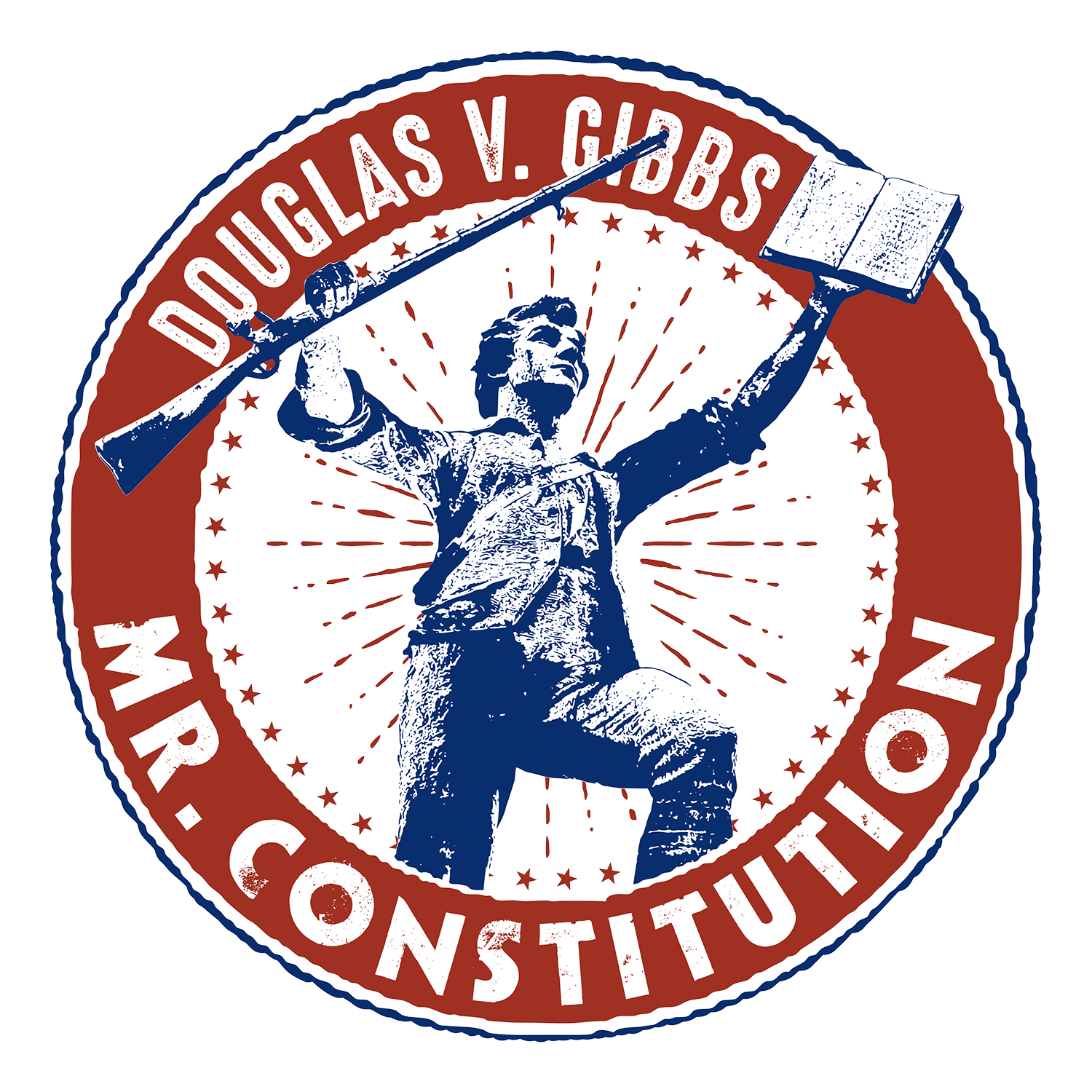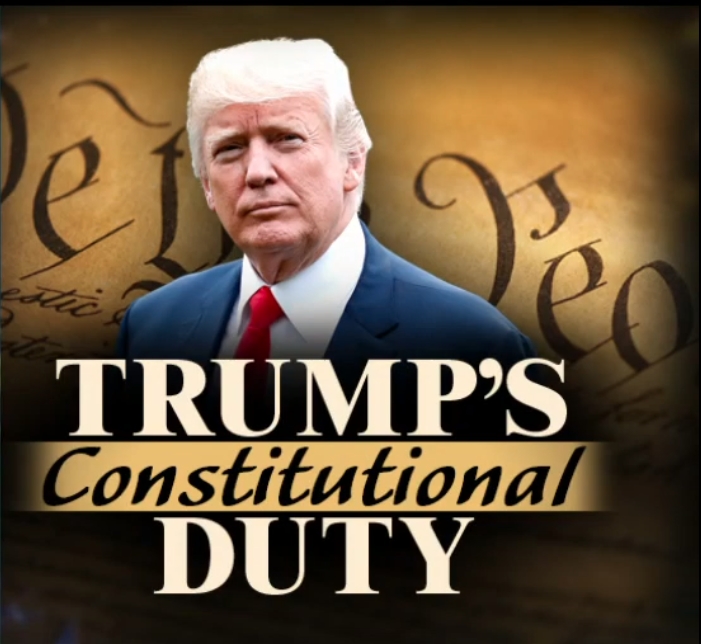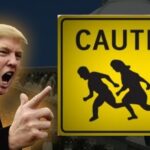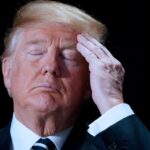By Douglas V. Gibbs
Civics used to be a big deal in high school. Not so much, anymore. But, if you have any civics education under your belt, you will likely recognize that we have in the United States of America three branches of government – and contrary to popular opinion, they were not designed to be co-equal. That is a myth. A fallacy. A textbook falsehood shoved into the minds of Americans since the earliest days of their young lives in the public schools. Generations of progressive academics has poisoned the minds of Americans, and the voices and the actions of bureaucrats who have never met a separation of powers they didn’t believe they could trample have hammered home the unconstitutional concept of three co-equal branches of government.
The Founding Fathers did not build a symmetrical triangle of power. They created a hierarchy of authority – each branch with distinct, vested, and irrevocable powers. The word “vested” found in the first three articles of the Constitution is not window dressing. It means “exclusive.” It means once it’s given to a branch, it stays with that branch. And at the top of this constitutional food chain rests the legislative branch. Congress. The only branch with the authority to create, modify, and repeal laws. As it states in Article I, Section 1 of the Constitution, “All legislative powers herein granted shall be vested in a Congress.”
What does that mean for the executive branch? For President Donald J. Trump?
It means that the President “executes” the law. He doesn’t invent it. he doesn’t rewrite it. he doesn’t “interpret it.” That’s what we are getting from the radicals in academia and the media, but they don’t have any constitutional authority at all, and pretty much every time they open their mouths their “interpretation” of the Constitution is far from what was originally intended.
The President’s job is to execute the law as written by Congress. And here’s where the genius of the Constitution shines: The power to execute the law is the ability to interact with the world. The President is in the real world, not in committee, therefore, Congress has largely recognized that the President must be given the ability to execute his powers without them tying him up with their bureaucracy and committees.
A friend likes to say to me, “For God so love the world he didn’t send a committee.”
I will have to agree.
The Founding Fathers thought this thing out carefully. While they did not create the position of the presidency to be an all-powerful king, they did not go the opposite extreme, either. The Office of the President of the United States is one of balance. It is not all-powerful, but the executive branch was designed to be strong. They understood that the President, while limited in certain capacities, had to have the energy to act decisively, especially in matters of war, diplomacy, trade, and emergencies. Alexander Hamilton even wrote in Federalist #70 that a “vigorous executive” was essential to good government.
President Trump embodies that vision like only a few Presidents since George Washington. Like Jefferson. Like James Madison. Like John Tyler. Not because he’s trying to become a king, but because he understands that executing the law means wielding the tools the Constitution provides – without apology and without hesitation.
Let’s talk war as an example. The Constitution gives Congress the power to declare war. But it gives the President the power to wage it. Commander-in-Chief – that’s not ceremonial. That’s not symbolic. That is operational authority. The Barbary Wars by Jefferson and Madison were not declared by Congress, yet those presidents waged war and sought funding after the fact. And one could hardly argue that Thomas Jefferson and Madison, the latter being the Father of the Constitution, failed to understand the Constitution’s granting of authorities regarding war.
Fast-forward to Iraq under George W. Bush. Congress kept whining about the war but kept approving the funding. If they didn’t want the war, they had two tools: defund it, or impeach the President. They did neither. Why? Because the Constitution grants the President the power to deploy forces and manage combat – that’s what Commander-in-Chief means; and, despite their words on the surface, each of them had originally blessed Bush’s war, and kept funding it. I am not saying that putting boots on the ground in Iraq was the right thing to do – I am saying that George W. Bush had every authority to wage that war despite the screaming and tantrums by members of Congress.
Donald Trump understands this. When he takes decisive action, he’s not overstepping his bounds – he’s walking directly in the footsteps of Jefferson, Madison, and Washington.
Tariffs? Congress has constitutional authority to establish duties and taxation. But they’ve passed laws – repeatedly – giving the President leeway to adjust tariffs based on national security, emergency powers, and foreign negotiations.
President Trump, using those powers, did exactly what the law allows: negotiate better trade deals, punish unfair actors like China, and defend American industry. And while his opponents are screaming, “Dictator!” they need to be reminded that he used law as it’s written, not as the media or the leftist bureaucrats wishes it were.
Same thing with foreign policy. The President represents the United States abroad, not a 535-member Congressional delegation or a mob of bureaucrats. Treaties, diplomacy, sanctions, peace deals – those are executed by the President. The Congress can advise, fund, or object, and in the case of treaties they are even required to ratify them before they go into effect, but it is the executive who executes regarding each of these things.
Executive Orders, a name that emerged during the Progressive Era, have been a tool of the President since day one. Washington issued them, but they were called Presidential Proclamations back then. President Trump is not simply issuing them out of thin air. Executive Orders are not legislation – they’re instructions to the executive branch on how to execute existing law. That’s his job! He’s the boss of the departments and agencies. He hires, fires, and restructures the executive departments and agencies. Sure, Congress creates them, and to disestablish any of them requires an act of Congress – but the daily operations belong to the President. And Donald Trump has masterfully used executive orders to undo decades of bureaucratic overreach, slash red tape, begin a journey back to the Constitution for the federal government, and return power belonging to the States back to the States – as the Constitution demands.
Let’s clear the fog on some “controversial” Trump positions and statements. Prayer in schools? Bible in schools? He’s not establishing religion. He’s restoring freedom. But the real issue? The federal government has no business in education to begin with. It’s not in the Constitution. The Department of Education is unconstitutional. It’s a Carter-era monstrosity that should’ve never been born, and a legacy dating back to Dewey’s progressive education beginning in 1899 that was unconstitutional from the very beginning.
Education is a state issue. Local issue. Parental issue. Jefferson knew it – which is why he indicated that education must be funded by the states and administered locally. The Founders understood that education belonged in the hands of the communities and the parents. And Donald Trump understands that, which is why he supports eliminating the Department of Education and sending power back to where it belongs.
Same with abortion. Invalidating Roe didn’t outlaw abortion – it returned the issue back to the States, where it belongs. That’s constitutional originalism in action, and Donald Trump has stated on numerous occasions that he is in agreement with that.
One more sacred cow: birthright citizenship. The Fourteenth Amendment does not grant citizenship to every person born on American soil. Read the clause: “subject to the jurisdiction thereof.” The writers of that clause in congressional testimony stated that it means “not subject to a foreign power” – language taken from the Civil Rights Act of 1866, and by basic logic.
Therefore, Trump’s position on birthright citizenship is legally sound. Constitutionally solid. And exactly in line with the law as written.
Despite the cries of his opponents that he is some kind of authoritarian President, the reality is that President Trump is not “abusing” power. His opponents with their Trump Derangement Syndrome ripping through their brains are intent on bringing him down, and their followers misunderstand what the executive power of the President is really about. They have been kneeling at the alter of judicial power and they have come to fear strong executives and decisive executive decisions (unless of course it’s one of their guys). The Constitution gives the President the right tools, and Donald Trump is one of the few presidents in modern history who actually picks them up and uses them.
Trump doesn’t interpret the Constitution – he reads it, respects it, and executes is. He understands that America works best when the President executes the law, Congress writes the law, and the courts apply the law – not invent it.
The President’s critics scream “authoritarian,” but what they really fear is a President who knows the Constitution better than they do, and applies its principles.
And that is exactly what makes Donald J. Trump the most constitutional President since the Founders themselves, and John Tyler and Calvin Coolidge.
— Political Pistachio Constitutional News and Commentary



